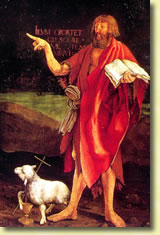Feast Day of the Confession of St. Peter
1 Peter 5: 1-4
Matthew 16: 13-20
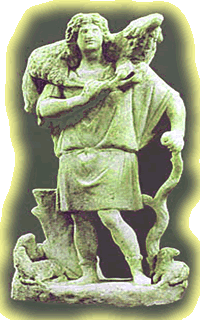 Today is the feast day of the Confession of St. Peter. What could I say to you about Peter that you yourselves have not heard a hundred times before? As I’m sure you know, the passage from the gospel this morning has been controversial in the history of the church, with Roman Catholics interpreting the passage to mean that not only is Peter the rock on whom the church is founded, but that the bishop of Rome—the pope—is the successor of Peter. Western Reformation Christians and Orthodox Christians have interpreted the passage otherwise.
Today is the feast day of the Confession of St. Peter. What could I say to you about Peter that you yourselves have not heard a hundred times before? As I’m sure you know, the passage from the gospel this morning has been controversial in the history of the church, with Roman Catholics interpreting the passage to mean that not only is Peter the rock on whom the church is founded, but that the bishop of Rome—the pope—is the successor of Peter. Western Reformation Christians and Orthodox Christians have interpreted the passage otherwise.
However, I am not sure how edifying a sermon on the various ways in which Roman Catholics, Eastern Orthodox and Reformation Christians have interpreted Matt.16 would be. Given the likely audience at a Jan Term chapel, I would doubt whether many of you are staying awake at night worrying about whether the pope is the rightful successor to Peter. However, as I looked at this passage and especially at the epistle reading from 1 Peter this morning, I realized that you were the proper audience for a different kind of sermon.Let me re-read part of the epistle reading:
So I exhort the elders among you, as a fellow elder and a witness of the sufferings of Christ, as well as a partaker in the glory that is going to be revealed, shepherd the flock of God that is among you, exercising oversight, not under compulsion, but willingly, as God would have you, not for shameful gain, but eagerly, not domineering over those in your charge, but being examples to your flock.” (1 Peter. 5:1-3)
I find myself in an unusual situation this morning. I am a lay person, and I find myself speaking to a chapel full of people who are either mostly clergy, or who are studying to some day be clergy. On most Sundays I find the situation reversed. You are the ones that Peter addresses in his epistle as “elders.” The Greek here is presbyteros, sometime translated as pastor or priest. And the English word pastor comes from the Latin word pastor which means “Shepherd.” You are or will be the shepherds, the ones whom Peter exhorts to “shepherd the flock of God.” And, apart from Christ, Peter is the New Testament’s prime example of a Christian Shepherd. In John’s gospel, the risen Christ commands Peter, “Feed my sheep.” Regardless of our theology of the episcopate or the primacy of the pope, we know who Peter’s successors are. You are, or you will be. You are the shepherds, and your job is, as Peter says, “to shepherd the flock of God,” and “to be examples to your flock.” (more…)
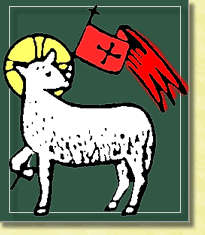 O ne of the prerogatives of the preacher is that, since he or she is the one in the pulpit, he or she can also break the rules on occasion. This morning, I’d like to break the rules a little bit. Rather than preaching on the Scriptural readings, I’m going to talk about them. In a few minutes, you’ll realize what I mean by that.
O ne of the prerogatives of the preacher is that, since he or she is the one in the pulpit, he or she can also break the rules on occasion. This morning, I’d like to break the rules a little bit. Rather than preaching on the Scriptural readings, I’m going to talk about them. In a few minutes, you’ll realize what I mean by that.


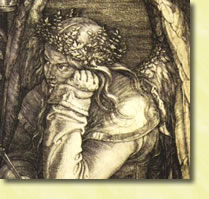


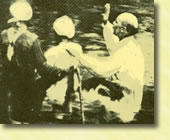


 Today is the feast day of the Confession of St. Peter. What could I say to you about Peter that you yourselves have not heard a hundred times before? As I’m sure you know, the passage from the gospel this morning has been controversial in the history of the church, with Roman Catholics interpreting the passage to mean that not only is Peter the rock on whom the church is founded, but that the bishop of Rome—the pope—is the successor of Peter. Western Reformation Christians and Orthodox Christians have interpreted the passage otherwise.
Today is the feast day of the Confession of St. Peter. What could I say to you about Peter that you yourselves have not heard a hundred times before? As I’m sure you know, the passage from the gospel this morning has been controversial in the history of the church, with Roman Catholics interpreting the passage to mean that not only is Peter the rock on whom the church is founded, but that the bishop of Rome—the pope—is the successor of Peter. Western Reformation Christians and Orthodox Christians have interpreted the passage otherwise.
